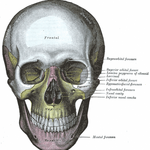
In popular legend, Lucrezia Borgia, Duchess of Ferrara (1480- 1519), stands falsely accused of poisoning her second husband. Victor Hugo portrayed her in thinly veiled fiction as a tragic femme fatale. Buffalo Bill named his gun after her.
But new research by USC historian Diane Yvonne Ghirardo claims that the only sister of Machiavelli's Prince was less interested in political intrigue than in running a business, undertaking massive land development projects that "stand alone in the panorama of early sixteenth-century projects, not only those initiated by women," Ghirardo says.
Forced…





